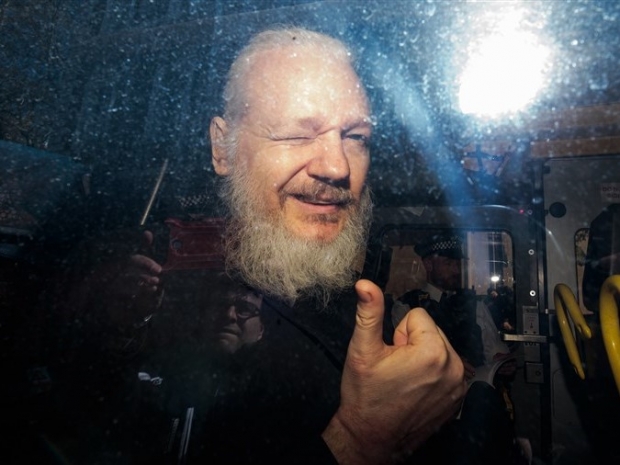The DOJ said in a press release: "The new indictment does not add additional counts to the prior 18-count superseding indictment returned against Assange in May 2019. It does, however, broaden the scope of the conspiracy surrounding alleged computer intrusions with which Assange was previously charged."
The DOJ claims Assange and others at WikiLeaks recruited and agreed with hackers to commit computer intrusions to benefit WikiLeaks.
Since the early days of WikiLeaks, Assange has spoken at hacking conferences to tout his own history as a "famous teenage hacker in Australia" and to encourage others to hack to obtain information for WikiLeaks.
In 2009, for instance, Assange told the Hacking At Random conference that WikiLeaks had obtained nonpublic documents from the Congressional Research Service by exploiting "a small vulnerability" inside the document distribution system of the United States Congress, and then asserted that "[t]his is what any one of you would find if you were actually looking."
In 2010, Assange gained unauthorised access to a government computer system of a NATO country, the DoJ said.
In 2012, Assange communicated directly with a leader of the hacking group LulzSec, who by then was cooperating with the FBI, and provided a list of targets for LulzSec to hack.
Assange asked the LulzSec leader to look for and provide to WikiLeaks mail and documents, databases and pdfs. In another communication, Assange told the LulzSec leader that the most impactful release of hacked materials would be from the CIA, NSA, or the New York Times.
WikiLeaks obtained and published emails from a data breach committed against an American intelligence consulting company by an "Anonymous" and LulzSec-affiliated hacker. According to that hacker, Assange indirectly asked him to spam that victim company again.

